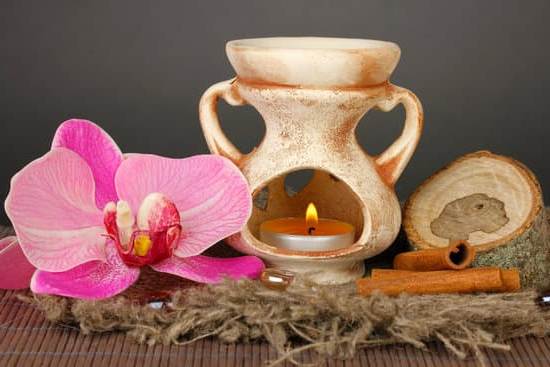Aromatherapy has been used for centuries as a natural way to promote health and well-being through the use of essential oils. These potent botanical extracts have a wide range of therapeutic properties that can help alleviate various ailments and enhance overall wellness. In this article, we will delve into the world of aromatherapy and explore the healing power of essential oils.
Essential oils are highly concentrated plant extracts that are derived from flowers, leaves, roots, and other parts of aromatic plants. When inhaled or applied to the skin, these oils can have a profound impact on our physical, emotional, and mental health. From relieving stress and anxiety to improving sleep quality and reducing inflammation, aromatherapy oils offer a holistic approach to healing.
When it comes to incorporating aromatherapy into your daily routine, choosing the right essential oils is essential. Factors such as scent preference, intended use, and individual sensitivities should all be taken into consideration when selecting which oils to use. In the following sections, we will provide you with a guide to the top 10 must-have aromatherapy oils for beginners, along with tips on how to use them effectively for maximum benefits.
The Science Behind Aromatherapy
Aromatherapy, a practice that involves using essential oils for therapeutic purposes, has been gaining popularity for its potential to promote physical, emotional, and mental well-being. The science behind aromatherapy lies in the interactions between essential oils and the body and mind. Essential oils are highly concentrated plant extracts that contain volatile compounds with various healing properties. When these oils are inhaled or applied to the skin, they can elicit specific responses in the body.
One of the key ways in which essential oils interact with the body is through olfaction, or the sense of smell. When you inhale an aroma, it travels through your nasal passages to your olfactory system, where it stimulates your olfactory nerves. These nerves then send signals to the limbic system in the brain, which is responsible for emotions, memories, and behavior. This direct connection between scent and emotions is why certain aromas can evoke specific feelings or trigger memories.
In addition to their effects on mood and emotions, essential oils also have physical effects on the body. When applied topically, some oils can be absorbed through the skin and enter the bloodstream, where they can have medicinal properties. For example, peppermint oil has cooling properties that can help relieve muscle pain when applied topically.
The chemical components of essential oils can also interact with receptors in the body to produce therapeutic effects. Understanding how essential oils interact with both the body and mind is essential for harnessing their healing benefits effectively.must have aromatherapy oils.
Choosing the Right Essential Oils
Aromatherapy oils have gained popularity for their therapeutic properties and soothing effects on the mind and body. When choosing the right essential oils for your needs, there are several factors to consider to ensure you get the most out of their benefits.
First and foremost, it’s essential to understand your purpose for using aromatherapy oils. Whether you’re looking for stress relief, better sleep, or pain management, different oils offer varying benefits. For example, lavender oil is known for its calming properties, while eucalyptus oil is commonly used for respiratory support.
Another crucial factor to consider is the quality of the essential oils. It’s important to choose pure, high-quality oils that are free from synthetic additives or fillers. Look for oils that are labeled as “100% pure” or “therapeutic grade” to ensure you are getting a potent and effective product.
Lastly, personal preference plays a significant role in selecting aromatherapy oils. Consider the scent profiles that appeal to you and resonate with your senses. Experimenting with different oils and blends can help you find what works best for you in promoting relaxation, focus, or overall well-being.
| Factors to Consider | Considerations |
|---|---|
| Purpose | Stress relief, better sleep, pain management |
| Quality | Pure, high-quality, free from synthetic additives |
| Personal preference | Scent profiles that appeal to individual preferences |
Top 10 Must-Have Aromatherapy Oils for Beginners
Aromatherapy is a holistic healing treatment that uses natural plant extracts, also known as essential oils, to promote health and well-being. These aromatic essential oils have been used for centuries for their various therapeutic benefits on both the body and mind.
When starting with aromatherapy, it is important to choose the right essential oils that are versatile and effective. Here are the top 10 must-have aromatherapy oils for beginners to kickstart your journey into this wonderful world of natural healing.
1. Lavender Oil: Known for its calming and relaxing properties, lavender oil is perfect for reducing stress, anxiety, and promoting better sleep. It can also help alleviate headaches and mild pain.
2. Peppermint Oil: With its refreshing and invigorating scent, peppermint oil is great for boosting energy levels, improving focus, and relieving nausea or indigestion.
3. Tea Tree Oil: Tea tree oil has powerful antibacterial and antifungal properties, making it ideal for treating skin conditions such as acne, cuts, or insect bites.
4. Eucalyptus Oil: This oil is commonly used to relieve respiratory issues like congestion or coughs. Its fresh scent can also help clear the mind and improve mental clarity.
5. Lemon Oil: A bright and uplifting oil, lemon can enhance mood, uplift spirits, and even act as a natural disinfectant when used in cleaning products.
| Essential Oil | Main Benefits |
|---|---|
| Lavender Oil | Calming, stress-relief, promotes better sleep |
| Peppermint Oil | Energy booster, improves focus, relieves nausea |
| Tea Tree Oil | Antibacterial properties, treats skin conditions |
These essential oils are just the beginning of your aromatherapy journey. Each one provides unique benefits and can be used alone or blended with other oils to create customized aromatherapy blends. Remember to always dilute essential oils properly before applying them to the skin or using them in a diffuser. With these must-have aromatherapy oils in your collection, you’ll be well-equipped to explore the endless possibilities of natural health and wellness through the power of essential oils.
How to Use Aromatherapy Oils
Aromatherapy oils have been used for centuries to promote relaxation, improve mood, and support overall well-being. There are various methods of applying these essential oils, each offering unique benefits. Whether you prefer inhaling the scent, applying topically, or using them in a diffuser, incorporating aromatherapy into your daily routine can have a positive impact on your physical and mental health.
Inhalation
One of the most common ways to use aromatherapy oils is through inhalation. This can be done by simply adding a few drops of the oil to a cotton ball or tissue and inhaling deeply. You can also add the oil to a bowl of hot water and create steam for inhalation. Inhaling essential oils can help with respiratory issues, improve focus and concentration, and elevate mood.
Topical Application
Another popular method of using aromatherapy oils is through topical application. When diluted with a carrier oil, such as coconut or almond oil, essential oils can be safely applied to the skin. This method allows the oils to be absorbed into the bloodstream, providing benefits such as pain relief, reduced inflammation, and improved skin health. It’s important to always perform a patch test before applying any essential oil topically to avoid any potential skin sensitivities.
Diffusion
Using an essential oil diffuser is another effective way to enjoy the benefits of aromatherapy oils. Diffusers disperse the oils into the air as tiny droplets which can then be inhaled for therapeutic effects. Diffusing essential oils not only helps purify the air but also creates a calming atmosphere that promotes relaxation and stress relief. Just ensure that your diffuser is made for use with essential oils and always follow manufacturer’s instructions for safe usage.
Exploring these different methods of application will allow you to fully experience the benefits of aromatherapy oils in your daily life. Whether you are looking to relax after a long day, boost your mood, or improve sleep quality, incorporating essential oils into your routine can have a powerful impact on your overall well-being.
By choosing high-quality must-have aromatherapy oils and experimenting with different application techniques, you can create a holistic approach to wellness that nurtures both body and mind.
Aromatherapy for Stress Relief
Lavender Oil
One of the most popular oils for stress relief is lavender oil. Known for its calming and soothing properties, lavender oil can help reduce stress and anxiety levels. Its gentle scent promotes relaxation and can aid in better sleep quality. Inhalation of lavender oil or adding a few drops to a bath can help alleviate tension and promote a sense of calmness.
Chamomile Oil
Another essential oil that is highly effective in reducing stress is chamomile oil. This soothing oil has natural sedative properties that can help relax the mind and body. Chamomile oil is known to promote feelings of relaxation and ease anxiety symptoms. Diffusing chamomile oil in your living space or mixing it with a carrier oil for a calming massage can provide instant relief from stress.
Bergamot Oil
For those looking for a citrusy-scented oil to uplift their mood and reduce stress, bergamot oil is an excellent choice. Bergamot oil is known for its ability to relieve tension, anxiety, and depression. The refreshing aroma of bergamot can boost mood and create a positive atmosphere. Diffusing bergamot oil during times of stress or blending it with other relaxing oils like lavender can enhance its calming effects on the mind and body.
Aromatherapy for Ailments
Aromatherapy oils have been used for centuries to alleviate various ailments, from headaches to muscle pain. These essential oils harness the power of nature to provide relief and promote overall well-being. When it comes to treating specific ailments with aromatherapy, certain oils are particularly effective due to their unique properties and benefits. Here are some must-have aromatherapy oils that can help address common health concerns:
- Lavender Oil: Known for its calming and soothing properties, lavender oil is often used to relieve headaches, migraines, and insomnia. Its gentle scent can help relax the mind and body, promoting better sleep and reducing stress levels.
- Peppermint Oil: With its cooling sensation and invigorating aroma, peppermint oil is a popular choice for alleviating headaches and muscle pain. Its analgesic properties can help reduce discomfort and promote relaxation.
- Eucalyptus Oil: Ideal for respiratory issues such as congestion and coughs, eucalyptus oil has decongestant and expectorant properties. Its fresh scent can clear the airways and improve breathing, making it a go-to oil for colds and sinus problems.
In addition to these essential oils, others like tea tree oil for its antibacterial properties or chamomile oil for its anti-inflammatory effects can also be beneficial in treating specific ailments. It’s important to remember that when using aromatherapy oils for medicinal purposes, they should be properly diluted and applied according to recommended guidelines. Always perform a patch test before using any new oil to check for allergies or sensitivities.
Harnessing the power of aromatherapy oils for ailments not only provides natural relief but also promotes holistic healing by addressing both physical symptoms and emotional well-being. By incorporating these must-have essential oils into your wellness routine, you can experience the therapeutic benefits of nature in managing various health concerns effectively. Experiment with different blends and methods of application to find what works best for you in enhancing your overall health and vitality.
DIY Aromatherapy Recipes
Aromatherapy is a holistic healing practice that harnesses the power of essential oils to promote physical, emotional, and mental well-being. One of the most exciting aspects of aromatherapy is creating your own blends and products tailored to your specific needs. By using must-have aromatherapy oils, you can craft personalized recipes that uplift your mood, enhance relaxation, and address common ailments.
When creating your DIY aromatherapy recipes, it’s important to start with high-quality essential oils. The purity and potency of the oils will significantly impact the effectiveness of your blends. Here are some must-have aromatherapy oils that serve as versatile building blocks for creating a wide range of products:
- Lavender: Known for its calming properties, lavender oil is excellent for promoting relaxation and reducing anxiety.
- Peppermint: With its invigorating scent, peppermint oil can help alleviate headaches, improve focus, and boost energy levels.
- Lemon: Lemon oil has a bright and uplifting aroma that can enhance mood, purify the air, and provide a refreshing scent in cleaning products.
Once you have selected your must-have oils, you can start experimenting with different combinations to create unique blends. Whether you are looking to create a calming room spray, a soothing bath soak, or a revitalizing massage oil, there are endless possibilities for incorporating aromatherapy into your daily routine. By exploring different recipes and applications, you can customize your experience with essential oils to support overall wellness and balance in your life.
Conclusion
In conclusion, incorporating aromatherapy oils into your daily wellness routine can have a profound impact on your overall health and well-being. The therapeutic benefits of essential oils have been recognized for centuries, and their healing properties continue to be studied and celebrated in modern times. Whether you are seeking stress relief, relaxation, or relief from common ailments such as headaches or muscle pain, there is a must-have aromatherapy oil that can help address your specific needs.
The 10 essential oils recommended for beginners provide a versatile and effective starting point for exploring the world of aromatherapy. From calming lavender to invigorating peppermint, these oils offer a range of benefits that can support your physical, mental, and emotional health. It is important to choose high-quality oils from reputable sources to ensure you are receiving the purest form of plant extracts without any added chemicals or fillers.
By learning how to properly use aromatherapy oils through different methods of application and creating personalized blends with DIY recipes, you can tailor your aromatherapy experience to suit your individual preferences and needs. Whether diffusing oils in a room, applying them topically during massage, or adding them to bathwater for a relaxing soak, the possibilities for incorporating essential oils into your self-care routine are endless.
Embrace the power of aromatherapy oils as natural remedies for promoting wellness and balance in both body and mind.
Frequently Asked Questions
What Are the Top 10 Essential Oils to Have?
Selecting the top 10 essential oils can depend on personal needs and preferences. However, some commonly recommended oils include lavender for relaxation, peppermint for focus and energy, tea tree for skincare, eucalyptus for respiratory support, and lemon for cleansing.
What Are the 12 Must Have Essential Oils?
When it comes to must-have essential oils, the list often includes versatile oils that cater to a range of needs. Some popular choices are lavender for its calming properties, frankincense for grounding effects, rosemary for mental clarity, chamomile for soothing benefits, and lemongrass for uplifting moods.
Which Oils Are Best for Aromatherapy?
Aromatherapy often relies on specific essential oils known for their therapeutic effects on the mind and body. Some popular options include lavender oil for stress relief, peppermint oil for headaches or nausea, bergamot oil for mood enhancement, ylang-ylang oil for relaxation, and rose oil for emotional balance. Finding the right oils can enhance the overall aromatherapy experience.

Are you looking for a natural way to improve your health and wellbeing?
If so, aromatherapy may be the answer for you.





